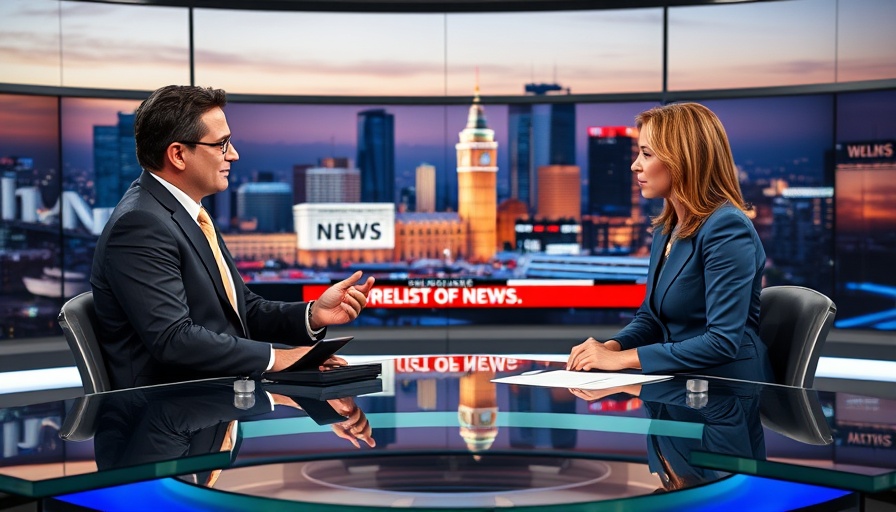
NPR’s Bias: Are We Really Seeing the Whole Picture?
In a recent congressional hearing, Congressman Jim Jordan raised pointed questions about NPR's editorial practices, citing troubling statistics and anecdotes that suggest a clear political bias at the network. Notably, Jim Jordan referenced former NPR editor Eric Berliner, who pointed out that during his tenure, there were 87 registered Democrats and zero Republicans in NPR's editorial leadership. Such a disparity begs the question: how impartial can an organization truly be when its leadership sees such an overwhelming political alignment?
In 'Chairman Jordan Slams NPR & Anti-American Media Bias', the discussion dives into NPR's alleged media bias, exploring critical insights that sparked deeper analysis on our end.
The Impact of Editorial Choices on Journalistic Integrity
This hearing highlights significant concerns regarding NPR’s handling of major political stories. For instance, the network's deep coverage of the Trump-Russia collusion narrative, as emphasized by Berliner, raises alarms about whether coverage was driven more by political motivations than by journalistic standards. When NPR shifted its focus after the Mueller report debunked the collusion claims, the narrative changed. This only exacerbates concerns regarding whether NPR selects stories based on their ability to attract listeners or uphold truth.
Trust in Media and the Role of Taxpayer Funding
As taxpayers, many conservatives grapple with the concept of funding a news organization that they believe demonstrates political bias. Congressman Jordan underscored this issue by questioning whether public funds should continue supporting a network perceived to lean left. With NPR's audience falling significantly over the past several years, now at 43 million compared to 60 million five years ago, the implications for taxpayer subsidies become even more pronounced. Should funds be funneled into an organization seen as a source of biased information?
Looking Ahead: The Future of Public Broadcasting
The implications raised in the hearing by Jordan and Berliner are profound. They compel us to consider the potential need for reform in how public broadcasting operates, ensuring that it aligns with the values of all Americans. As this discussion continues, it becomes crucial for conservative audiences to engage and advocate for transparency within the media landscape to uphold the principles of democracy and freedom that we cherish.
In light of these recent revelations, it’s essential for citizens to remain informed and vigilant about where their tax dollars are going. Engaging in dialogue about media impartiality can ensure that we hold accountable those organizations that benefit from taxpayer support.
 Add Row
Add Row  Add
Add 




Write A Comment